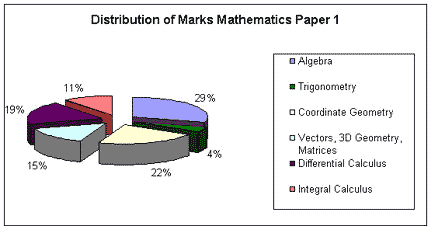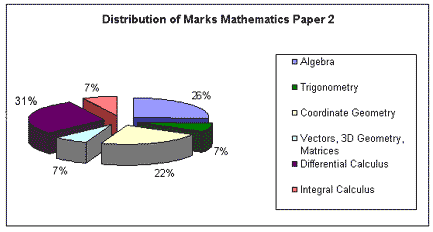|
|
| Help | |
| You are here: Rediff Home » India » Get Ahead » Careers » Education |
|
| |||||||||||||||||||||||
|
| |||||||||||||||||||||||
Following out tips on how to tackle the chemistry section of the IIT Joint Entrance Exam, we look at how to score in mathematics this week.
With just over a week to go for the exam, the best method of revision would be to strengthen the areas you are strong in and brush up the areas you are weak in.
The pattern of scores in IIT-JEE show that every single mark lost by a student increases the student's all-India rank (AIR) drastically. So, every single question should be attempted carefully without acquiring negative marks.
The IIT-JEE syllabus for mathematics can be broadly classified as algebra (includes probability theory), trigonometry, coordinate geometry (two dimensional) and vector algebra, three dimensional geometry and matrices and determinants, differential calculus and integral calculus (includes differential equations).
Area-wise segregation of marks has been slightly different through the years. So we should say that all these areas are important.
Now we will look at the manner in which the questions in these areas were distributed in the Paper 1 and Paper 2 of IIT-JEE 2007.


From the break-up we see that algebra, coordinate geometry and differential calculus stand out as three big sectors in the mathematics part of the JEE 2007 paper.
Consider algebra, this is a relatively easy area and with its great dominance in the question paper will help secure more marks.
- Meticulously prepare a summary containing all important formulae.
- Direct applications involving a few steps of numerical calculations are not rare in algebra.
- Geometrical interpretation of the concepts in algebra is an important aspect of the questions every year.
- Problems involving polynomials, complex numbers etc are much easier dealt with if graphical analysis is used.
- Sequences and series is yet another important topic with a good number of applications linked to it. Especially a good understanding of the concept of means will come handy in many places.
- Concepts from permutations and combinations are simple to understand, yet will help not only in direct applications of these concepts but also in probability theory.
Coordinate geometry includes straight lines and the second degree curves (circle, parabola, hyperbola and ellipse). Most of the problems from coordinate geometry involve concepts from differential calculus.
- An approximate sketch of the curves will show light on the methods to proceed with the solution.
- The intercepts on the axes, intersection points between the curves given in a particular problem are important clues to the final answer.
- Mistaking the curves for one another is a regular mistake committed by the students.
- More problems involving numerical data come from this area. Put additional efforts to avoid arithmetical errors.
Differential calculus includes everything starting from functions, limits and differentiation to application of derivatives.
- Again approximate sketches/ graphical interpretations will help to solve problems in a faster manner.
- In contrast to coordinate geometry, differential calculus has more concept-based problems. Concepts like continuity and differentiability are 'regulars' in JEE papers.
- Questions involving different properties of one particular function -- continuity, differentiability, increasing/ decreasing, maxima/ minima are frequent in Match the following/ Multiple Correct answer type of questions.
- Practical application of derivatives is a very vast area, yet if one understands the basic concepts involved; it is very easy to score.
Direct questions from trigonometry are usually less in number, but the usage of trigonometric concepts in coordinate geometry or calculus is very high.
A proper revision of all important formulae is necessary. Interpretation of system of equations as system of lines, planes or vectors is an important idea which is NOT focused in any other entrance examinations other than JEE.
Properties of definite integrals that focus on the nature of the curve is almost a 'sure' question area as far as the JEE is concerned.
IIT-JEE has become a more student-friendly examination with the descriptive part of the examination dropped. But the exam retains its challenge and charm as a tough examination due to the varied types of objective questions that come and due to the enormous number of students appearing for it.
The exam also demands a student to think on his/ her own and have a visual interpretation of the concepts in the syllabus. Students also have a second chance to support their own performance since both papers have all the three subjects, ie if one has not done mathematics up to the mark in paper 1, he/ she can still improve on it in paper 2.
So go ahead, revise well, put in your best effort and secure a good AIR in IIT-JEE 2008!
The writer is the Head of the Department of Mathematics of IIT-JEE Training at TIME.
|
|
| © 2008 Rediff.com India Limited. All Rights Reserved. Disclaimer | Feedback |